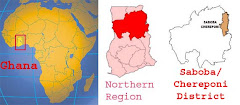As you read about what I am doing here in Saboba, many of you may be caught off guard. I understand that you may have thought I would be working in the field with those living in poverty and interacting with them first hand. I know that an office job was not what most expected when they heard I was going to
The ultimate aim of why I am here is to help development move along and specifically help the rural poor. What does “help the rural poor” mean? To me that means: allowing the voice of the rural poor to be heard, for their needs to be met, and for them to gain access to whatever their priority is. What I’ve realized from being here is that the way that development is carried out is much more complicated than just providing communities with what they need.
Let’s start off there. How does one find out what a community needs? You go to the field and ask them. But in that activity of going to the field, approach is important, to make sure that the true needs of ALL the people, even the marginalized ones, are heard. Through side projects and being a part of field activities, I am able to make sure that proper plans are made and good methods are used to get that critical information from communities. Not to suggest that this is not already done.
Now let’s say that the field implementers are experts at what they are doing, which in many cases they are, how do you transfer that information so that it can be used for accurate decision making? Documentation becomes important as well as analysis. To make decisions based on the needs of the people and to be able to provide them with the services they require, decisions need to be made on accurate and up to date information. Thus information management becomes crucial to provide communities with quality services. It is funny because I would have never thought that improved reporting and information management would ever be important in development, but when you have the multiple needs of 400 communities, resource constraints, and unexpected occurrences such as floods and droughts plaguing your environment, how could you ever cater to your people without accurate information?
However, information is only as good as it is used. So assuming that good data has been collected and documented; analysis and evidence based decision making is the next step. Making sure that communities gain access to services based on need, and ranking, and not for a number of other biases is the true crux. The rural poor will only develop if fair and well-informed decisions and plans are made. How does one begin to rank and prioritize the seemingly infinite problems with such a finite amount of resources?
As you can see from the trend, to truly develop the district and start to reduce poverty, there are key components that need to be present in the local government in order to facilitate that process. It is because of this need that I find myself working as a consultant, over an implementer. For sustainable development to occur, the district’s capacity must be built first.



2 comments:
It sounds like you are doing a masters in the university of life!
Still reading bro. Keep it up.
What has been your experience so far in terms of the reported and documented information that comes to you from the outreach/liason workers in the field? More to the point, can an office worker who is relying on these written reports accurately assess the needs in developing areas based on the reports alone, or are other resources needed?
Post a Comment